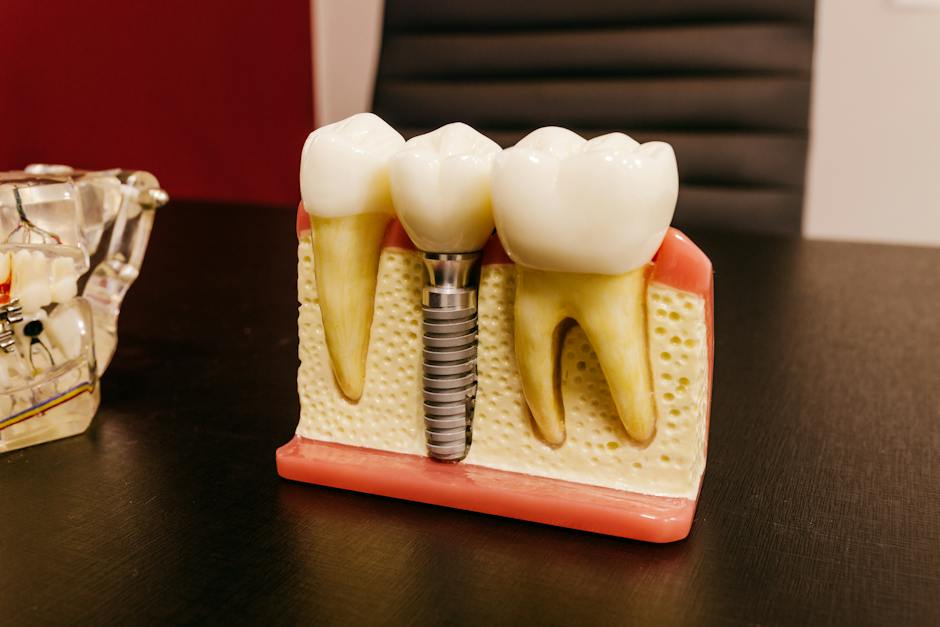The Pros and Cons of Dental Implants
Exploring the Benefits and Drawbacks of Dental Implants
Dental implants are a popular and effective way to replace missing teeth and restore your smile. They are surgically implanted into the jawbone, providing a sturdy base for artificial teeth. While dental implants offer various advantages, they also come with some considerations and drawbacks. In this article, we'll delve into the benefits and drawbacks of dental implants to help you make an informed decision about this dental treatment.
From enhanced confidence to improved oral health, dental implants can transform a person's life. However, potential drawbacks such as cost and the need for surgical procedures should also be carefully weighed. Let's explore the pros and cons of dental implants in detail.
Pros
Dental implants offer a range of benefits beyond just filling in the gaps from missing teeth. Let's take a closer look at the advantages of opting for dental implants.
Natural Look and Feel
Dental implants look and feel like natural teeth, providing a seamless and aesthetically pleasing solution for missing teeth. With proper care, they can last a lifetime, making them a durable choice for tooth replacement.
Improved Speech and Comfort
Unlike removable dentures, dental implants eliminate the discomfort and inconvenience of loose or ill-fitting dentures which can cause slurred speech. Implants allow for natural speech and eating with ease and comfort.
Preservation of Jawbone and Facial Structure
Implants help maintain the natural shape of your face and jaw, preventing bone loss and the facial sagging that can occur with missing teeth. This preservation of bone structure enhances long-term facial aesthetics.
Enhanced Confidence and Self-Esteem
By restoring a complete smile and the ability to eat and speak confidently, dental implants can significantly boost self-esteem and mental well-being. The natural look and functionality of implants contribute to a positive self-image.
Improved Oral Health
Unlike traditional tooth-supported bridges, dental implants do not require the alteration of nearby teeth, promoting better long-term oral health. Implants also make it easier to maintain good oral hygiene.
Long-Term Durability
One of the significant advantages of dental implants is their long-term durability. With proper care and maintenance, dental implants can last a lifetime, unlike traditional dental bridges or dentures that may need to be replaced or adjusted over time. This can result in cost savings and the avoidance of potential future dental procedures.
Improved Bone Health
Dental implants can contribute to improved bone health as they help to prevent further bone loss in the jaw. By integrating with the jawbone, implants provide stimulation that mimics the function of natural tooth roots. This stimulation can help prevent the deterioration of the jawbone, preserving overall oral structure and function.
Missing a pro?
Let us know which pro you are missing!
Cons
Despite their numerous advantages, dental implants may not be suitable for everyone. It's crucial to be aware of the potential downsides before opting for this treatment. Here are some key considerations to keep in mind.
Cost Considerations
Dental implants can be a significant investment, especially if multiple implants are required. The cost may vary based on the complexity of the case, additional procedures, and the materials used. It's essential to consider the long-term value against the initial expense.
Surgical Procedure and Healing Time
The process of getting dental implants involves oral surgery, which carries inherent risks and requires a period of healing and osseointegration before the final restoration. Patients should be prepared for the surgical aspect and follow post-operative care guidelines for optimal outcomes.
Possibility of Complications
While complications are rare, they can occur, including infection, nerve damage, or sinus problems in the case of upper jaw implants. Understanding the potential risks and discussing them with the dental team is essential for informed consent and proper management if complications arise.
Requirement for Good Oral Hygiene Habits
Maintaining oral hygiene is crucial for the success of dental implants. Patients need to be committed to thorough oral care and regular dental check-ups to prevent issues such as peri-implantitis, a condition similar to gum disease that can affect the implants.
Not Suitable for Everyone
Certain medical conditions, smoking habits, or insufficient bone density may limit the suitability of dental implants for some individuals. A comprehensive evaluation by the dental team is necessary to determine candidacy for the procedure.
Risk of Infection
One potential disadvantage of dental implants is the risk of infection, especially during the healing phase after the surgical procedure. Although rare, infection at the implant site can lead to complications and may require additional treatments or interventions to address. Patients should closely follow post-operative care instructions to minimize this risk.
Time-Consuming Process
The process of getting dental implants can be time-consuming, involving multiple phases that may span several months. This can be a disadvantage for individuals seeking a quick solution to replace missing teeth. Patients considering dental implants should be prepared for the treatment timeline and the various stages involved in the implant process.
Missing a con?
Let us know which con you are missing!
Conclusion
Ultimately, the decision to pursue dental implants should be based on a thorough understanding of their advantages and potential drawbacks. While they offer remarkable benefits for oral health and quality of life, it's important to consider the individual's specific circumstances and discuss any concerns with a qualified dental professional. By weighing the pros and cons thoughtfully, individuals can make an informed choice regarding dental implant treatment.
What do you think?
Do you think the pros outweigh the cons?





